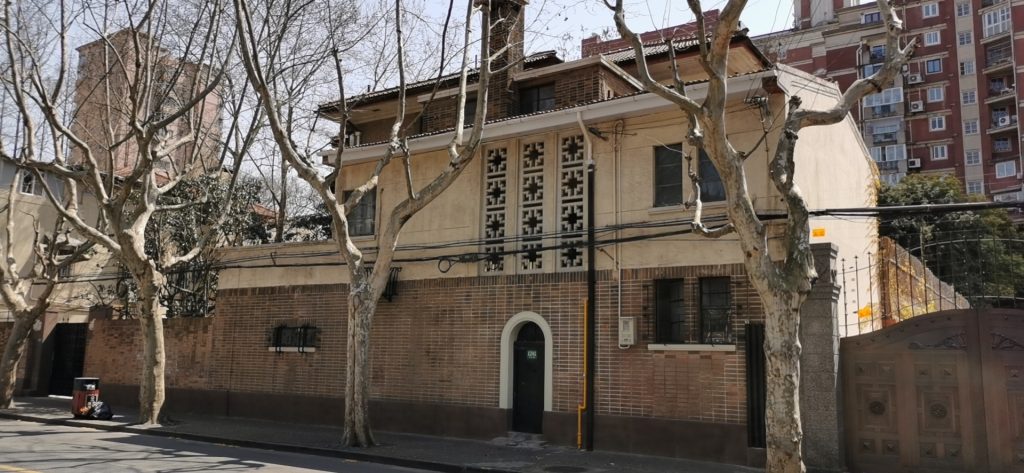As you know from posts on this blog, we deal a lot with inheritance issues on behalf of foreign clients with respect to estate properties in China. Very often, such inheritance of properties (typically real estate properties) will end up in a co-ownership of the properties by two or more heirs or beneficiaries. Well, if the co-owners are on good terms, everything will be fine in regard of maintenance or sale of such co-owned properties. But you know, things are not always as nice as they should be.
Just recently, in helping a client in purchasing a stand-alone garden villa in Shanghai French Concession Area (just an old name for that area of Shanghai that used to be colonized by France), a realtor asked me about how he can break the deadlock regarding a property, which is owned by three siblings at odds among whom two of them agree to sell and the third one refuses to cooperate, and has cut off contact with the first two brothers.

So what options are available under Chinese laws to break the deadlock?
I. Tenancy in Common Co-ownership
Before we delve into China laws, let us first understand the legal concept of concurrent ownership: tenancy in common or literally share-based co-ownership (in Chinese Pinyin An Fen Gong You).
Much the same as the concept in common law jurisdictions, it refers to a situation where a property is owned by two or more persons with each having a distinct percentage/share in the whole property. In other words, it is not physical splitting of the property among the co-owners.
Under Chinese Property Law, unless the parties stipulate otherwise, such co-ownership is presumed to be a tenancy in common rather than a joint tenancy. Oh, by the way, if the parties are of the same family, the joint tenancy will prevail in absence of agreement.
In the case of tenancy in common, each co-owner is free to dispose of his share in the property, for example, sell, pledge, or make a gift, subject to rules provided in China Property Law, such as preemptive right of other co-owners.
II. Options to Exit or End Co-ownership
(1) Forced Sale by Majority Co-owner(s)
We have run a post on this blog before entitled Sale of Co-owned Property in China. So you may know that China Property Law has a special provision (Article 97 of the Law) regarding the disposal of co-owned property to the effect: co-owner(s) representing two thirds or more of the whole ownership have the right to dispose of the property. Put it in another way, such co-owners accounting for two thirds or more of the ownership can directly sell the property without having to seek consent of the other co-owners.
This provision has been very controversial following the enactment of China Property Law as it seems to diverge from the mainstream practice in the world. Most jurisdictions require consents from all co-owners for selling the property.
What sparked the controversies is the lack of corollary rules for protecting the interests of the minority co-owner. The China Property Law doesn’t have any rules in that regard, and nor are there any rules in other laws and regulations. So if the co-owner(s) representing the majority of the ownership sells the property against the will of the minority co-owner, what is he going to do with the share of the sale proceeds that belongs to the dissenting co-owner? What if the dissenting co-owner challenges the price of the sale? What remedy does he have then? Without good answers to those questions, it is understandable to see few or no deals that can be completed in accordance with that Article 97 of China Property Law.
So it is a dead end? Maybe Not!
Firstly, we have located a few precedent cases in which China courts have upheld the validity of sale contract that was concluded by the majority (up to and over 2/3) co-owner without the participation of the minority co-owner. That means China courts still apply this sketchy rule in practice despite the problems surrounding it. We did see courts deny the validity of such forced sale contract but was overturned by appellate courts.
As per the China Contract Law, a valid contract entails performance of that contract. So our research on precedent cases showed that courts are also willing to enforce such property contract without giving regard to the opposition from the minority co-owners. Apparently the grumbling co-owner shall have to take separate legal action to vent its anger, which is not a big concern on the part of the buyer of the property.
Back to the deal the realtor mentioned above, even though the third sibling doesn’t agree on the sale, the other two accounting for two thirds of the property ownership can still proceed with the deal.
But here comes the problem: does the deal have to go through court proceeding for consummation?
Unfortunately, that is the case most likely.
A property sale deal generally closes at the real estate registration authority where both seller and buyer submit all required documents to the real estate authority and after a few days, the new title deed will be issued in the name of the buyer. Done!
However, in the case of forced sale of property as provided in Article 97 of China Property Law, some local real estate registration authorities simply refuse to entertain such application for title transfer if any of the co-owner doesn’t show up before them. This is sort of weird because the real estate authority at the central government level has issued a guideline which specifically addresses the title transfer in this scenario. Local authorities have their worry: the minority co-owner may sue them. So they would rather refuse to do their job unless required by the court judgment. When they have a court order to transfer the title to the buyer in that kind of deal, they have no risk to take.
(2) Division of Co-owned Property
In this case, instead of selling the property to any third party, it is a way out of the concurrent ownership available to any co-owner in tenancy in common.
China Property Law makes it clear that any co-owner of tenancy in common may request to divide the property any time. You can imagine the possible two scenarios once a co-owner starts the talk of dividing the property: (1) they can work out their deal on their own, meaning outgoing co-owner is bought out by others, or they can agree to sell it in the open market and divide the sale proceeds, and (2) they cannot work out on their own, and they go to court.
When the division makes its way to court, then it is possible that the property will be put on auction by court. That is generally not a good outcome for anyone.
III. Conclusion
So as you can learn from the above, a tenancy in common co-owned property in China may have a lot of trouble if the co-owners don’t get along well. It can easily lead to arguments in court room.
That said, in some cases, it is still possible to forge a way forward to get out of plight of the co-ownership, though painful indeed.
Lastly, when it comes to inheritance of China properties by multiple heirs or beneficiaries, it is always advisable to avoid co-ownership of properties in the first place, and if it is possible, it is better for all heirs or beneficiaries to arrange one person to take up title in China and hold the same on trust for all.







Comments